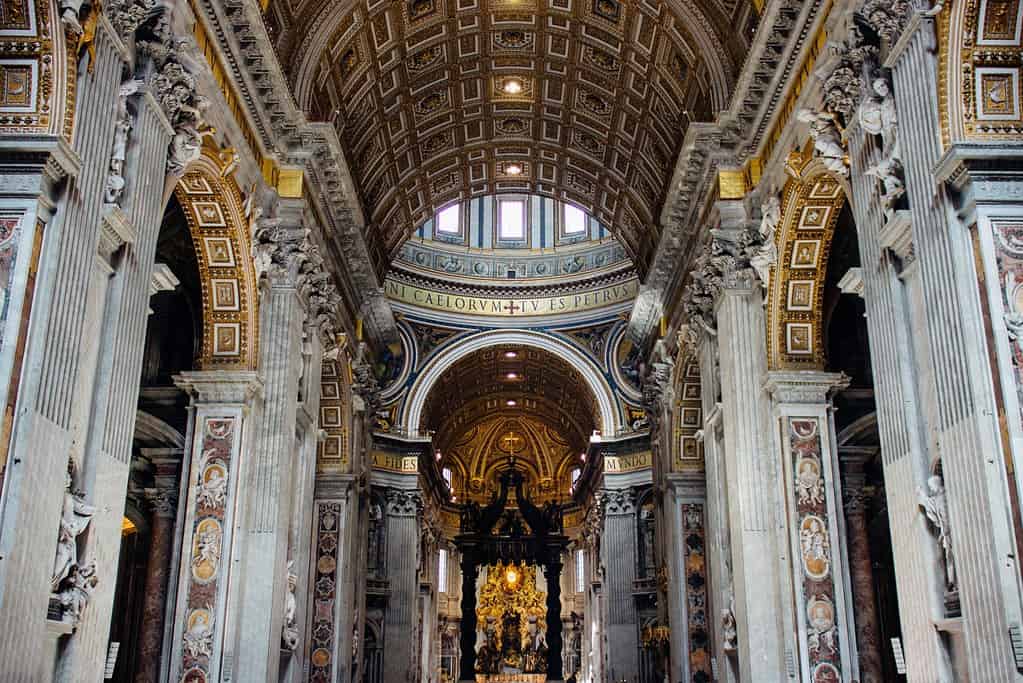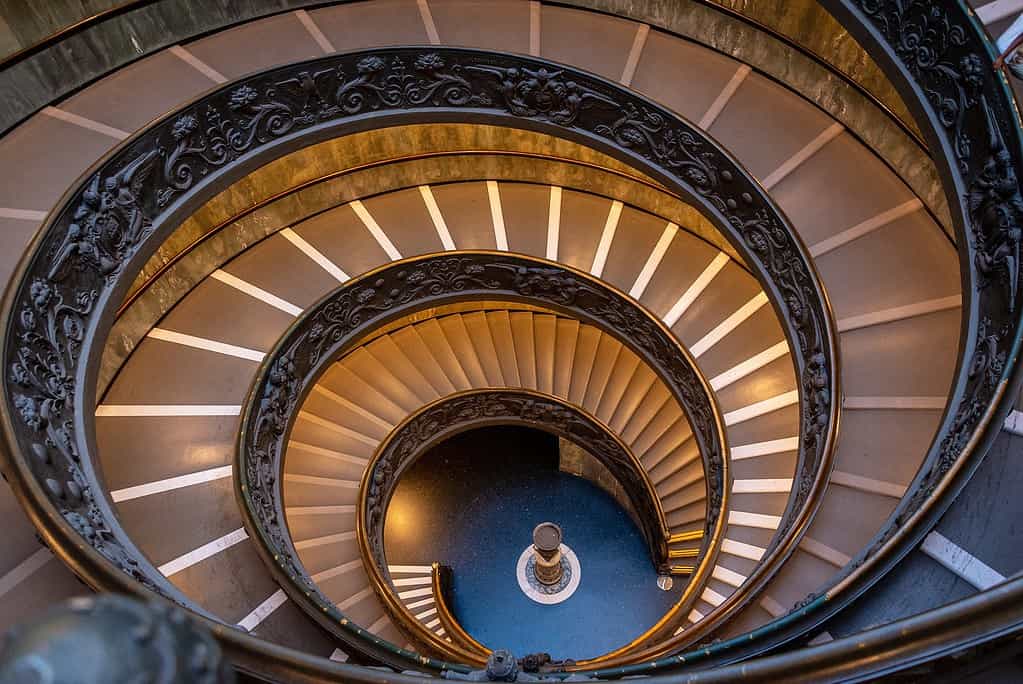The Vatican Museum – Full Guide for Visitors to the Vatican City and Museum
The Spanish Steps – check, The Roman Forum – check, Trastevere – Check, If you think you've seen it all in Rome, think again! One of the most magical pearls of the city is actually a state. You read that right, a state within a city! We'll give you some hints: It includes many gems and is related to one guy, the Pope. Romio's next article is dedicated to this state, and you'll find everything you need to know about it, and what to do there. Ladies and gentlemen, please welcome the Vatican City!
- Netanela Biton - Romio Team
- 25 April, 2023
The Vatican City, located on the west bank of the Tiber River, is an enclave within Rome and the smallest country in the world in terms of territory and population (most of which consists of religious residents). This impressive city-state serves as the global center of Catholic Christianity and the seat of the Pope, the head of the Catholic Church and the spiritual “father” of Catholics. It’s a pilgrimage destination for Catholic believers (therefore visitors should dress modestly).
It is the only country recognized as a UNESCO World Heritage Site, and one of the reasons for it is its huge and important collection of art works. The Vatican consists of several important sites and one of them is Saint Peter’s Square (named after Christ’s apostle), located at the entrance. It is a Baroque style square which was designed by the renowned architect Bernini, and is one of the symbols of the Catholic Church and Italy in general. It is used as a public square for religious ceremonies and events, and the Pope can be seen there giving his speeches and waving to the crowd. The oldest obelisk in Rome stands there, originated in ancient Egypt.
Saint Peter’s Basilica is situated right in front of the square. It is a beautiful central structure in the Vatican and the largest church in the world (there’s a quick passage to it without queuing through the museum; we will get to it later in the article). It is believed that Peter the Apostle (who was also the first pope) is buried under it. The basilica is the “Mecca” of the Catholic Christians and the most important and holy church for them. It also has impressive works of art such as mosaics and sculptures by well-known artists, and it greatly influenced European architecture and Baroque as well as Renaissance architecture. The dome structure (created by Michelangelo himself) is an architectural masterpiece that influenced many domes in the world, and can be seen from all over Rome. The entrance to this huge and impressive basilica is free and it is highly recommended to go up to its dome and look out over the square and Rome. The ascent to the dome involves many stairs and a symbolic fee, but it’s well worth the effort!

Saint Peter's Basilica
A prominent and inseparable part of the Vatican is its museums – an entire article can be written about them! The Vatican Museums are a huge complex (the largest in Italy) of museums of art, archeology and Christianity, which also include the Apostolic Palace (which also charges an entrance fee). They cover a large part of the Vatican and are considered among the largest and most famous museums in the world, with thousands of different rooms. The museums which were established in the 16th century present the enormous collections of the Catholic Church collected over the years, that include historical, important and amazingly beautiful works.
Below are Some of the Main Attractions of the Museums:
Raphael Rooms – Four rooms named after the famous artist. Upon entering the rooms, Visitors will feast their eyes on Raphael’s works and tapestries inspired by him.
The Art Gallery – A relatively new gallery with a huge number of paintings from the 12th to the 19th century. Among the familiar names are Da Vinci, Caravaggio, Raphael and more.
Pio Clementino Museum – Includes Roman and Greek sculptures and sarcophagi. This is one of the most important museums because it displays classical sculpture illustrating mythical and historical events (also the Chiaramonti Museum).
Gregorian Egyptian Museum – Dedicated to ancient Egypt and includes antiquities, hieroglyphics, statues et cetera.
Gregorian Etruscan Museum – Includes galleries displaying objects and antiquities from Etruria (an ancient country in the heart of Italy) and ancient Greece. For example, sarcophagi, pottery and bronze.
The Map Gallery – Presents beautiful maps of Italy.
The Hall – A magnificent hall built in the 18th century. It reproduces the form of the Pantheon and displayes statues and a floor with mosaics from the 3rd century.
The Missionary Ethnological Museum – Clarifies the missionary way of life and presents many works that illustrate different cultures from all over the world.
The Vatican Library – One of the largest libraries in the world. It consists of a secular and a holy museum (with ancient Christian relics).
The Contemporary Religious Art Collection – A collection of religious works from the 19th century by artists such as Van Gogh, Picasso, Dali and others.
The Vatican Historical Museum – Describes the interesting history of the Vatican.
The Spiral Staircase – A famous and mesmerizing staircase.
The Sistine Chapel – This is a church from the Renaissance that is located in the Apostolic Palace complex. It is named after Pope Sixtus IV who served during its construction. The church is especially known for the magnificent frescoes that adorn it and its ceiling, which commemorate events from the Old and New Testaments. Among the famous artists who created them are Botticelli and Michelangelo, with famous paintings such as “Judgment Day” and “The Creation of Man”. The ceremony of electing the pop (Papal conclave) is performed in this church.
Finally, it’s advised to visit the Vatican Gardens, established in 1279. These large and beautiful botanical gardens are owned by the Pope. They are designed with Italian, French and English influences and include statues, fountains, buildings and ancient monuments from the Renaissance and Baroque periods (they also charge an entrance fee).

Vatican Staircase
In conclusion
The Vatican is a must-see. It’s best to dedicate a whole day at least to its marvels, and preferably with a guide. Details about the admission policy to the museums can be found on the page of our delightful tour in the Vatican (in Hebrew), “A fascinating journey among the treasures of the Vatican”. You can also refer to our article on information about purchasing tickets without queuing.
We wish you a wonderful visit!



